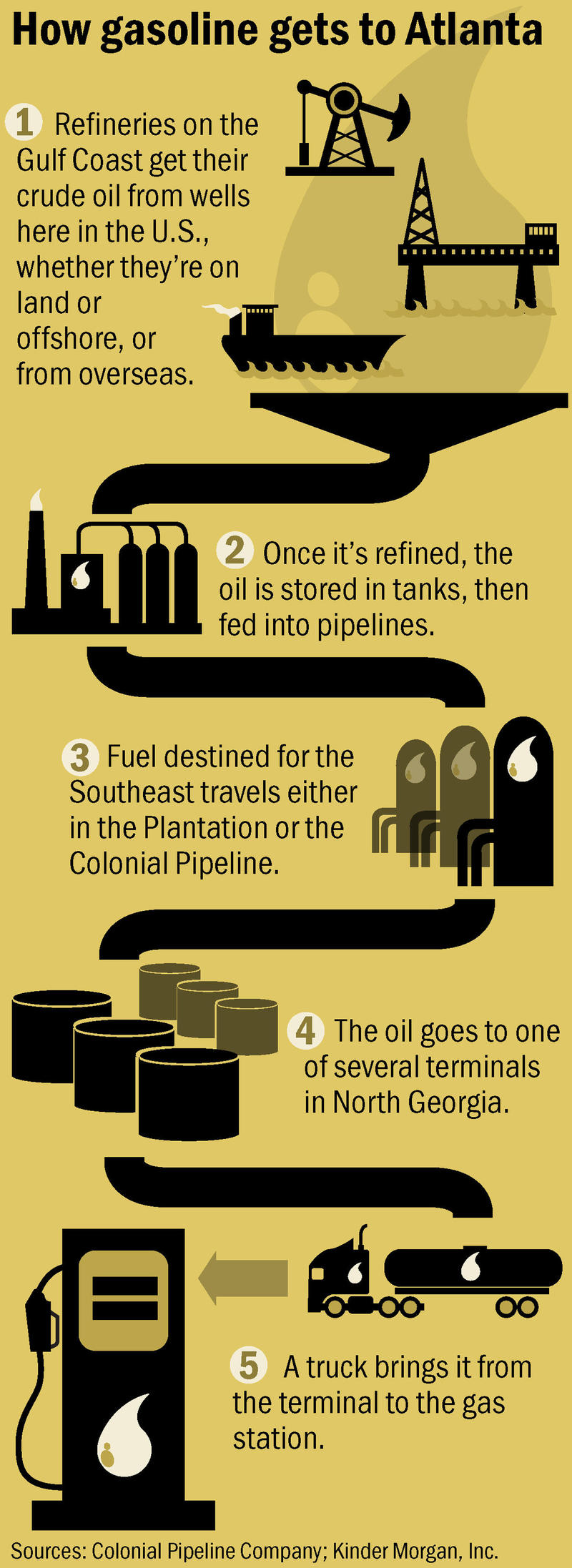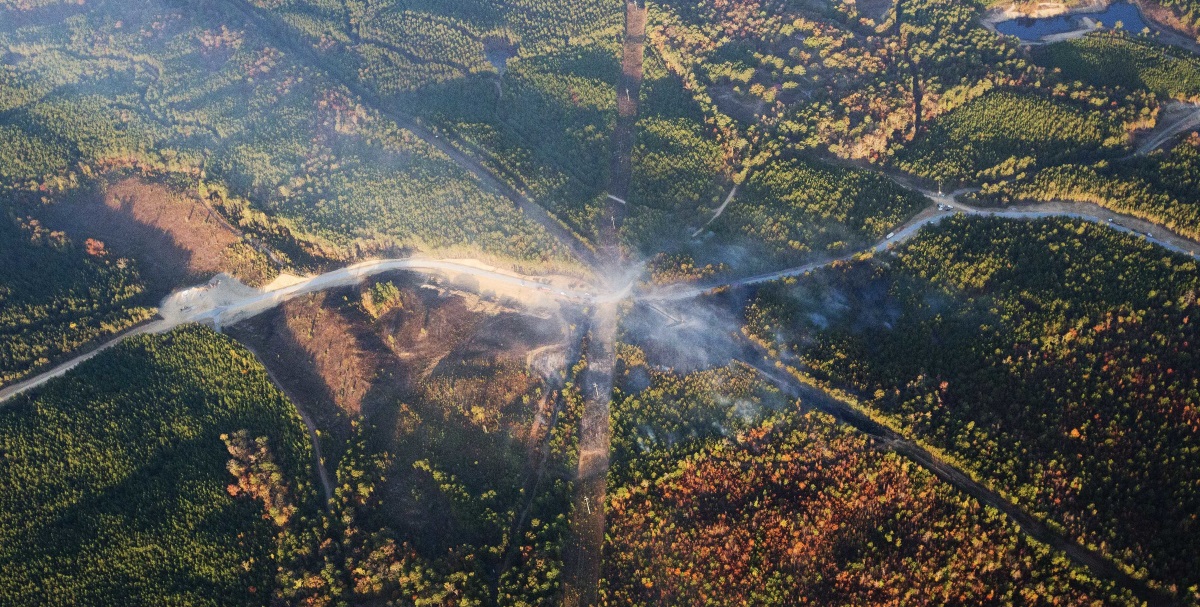The Colonial Pipeline will be shut down through the end of the week, following an explosion that killed one person and injured several others in Alabama on Monday.
This is the second issue with the pipeline in the last few months: it was shut down after it leaked hundreds of thousands of gallons of gasoline in September. That led to gas prices going up and shortages at some Atlanta gas stations.
Contractors were working on a project related to repairs from the earlier leak when this latest accident happened. A machine called a trackhoe hit the pipeline, rupturing it.
“It’s very unusual,” said Rebecca Craven, program director with the nonprofit group Pipeline Safety Trust.
Most pipeline incidents are caused by equipment failure or corrosion, she said. Excavation is responsible for a little more than 10 percent of accidents, and in most cases, the excavators are third parties: people digging to build sidewalks, or working on landscaping or putting in irrigation lines.
The “Call Before You Dig” campaign, encouraging people to double check on the locations of natural gas and liquid pipelines, has mostly been focused on third party contractors, said Craven.
“Perhaps this is an indication that we need to pay some more attention to operators and contractors as well,” she said.
At a news conference in Alabama on Tuesday, a Colonial Pipeline official said that the contractor had worked with the company before.
Georgia Gov. Nathan Deal issued an executive order late Tuesday, to allow truck drivers carrying gasoline to drive without limits on the hours they work. It’s intended to keep more fuel flowing into the state until the pipeline is running again.
The Colonial Pipeline is the larger of the two pipelines that bring gasoline, diesel and jet fuel to Atlanta from Gulf Coast refineries.
“That’s the way it’s been really since World War II,” said consultant and attorney Brigham McCown, who used to head the federal agency that regulates pipelines.
McCown said having other pipelines might help in situations like this, but it’s unlikely that new ones will be built, because it’s hard to get permits for them now.
“What we’re seeing with the Dakota Access pipeline is a lot of opposition and it’s building and building,” said Jeff Mower, editorial director, Americas Oil News and Analysis at S&P Global Platts. “It’s becoming sort of a celebrity cause now.”
There was the Keystone XL fight before the Dakota Access protests. And even here in Georgia, a proposed pipeline was shelved earlier this year.
That leaves car-centric Atlanta in a bit of a bind when accidents like this one happen. There is some risk with pipelines. But those pipelines are still safer than trains, says Mower, and more efficient than trucks or barges.
Like us on Facebook


9(MDAxODM0MDY4MDEyMTY4NDA3MzI3YjkzMw004))








